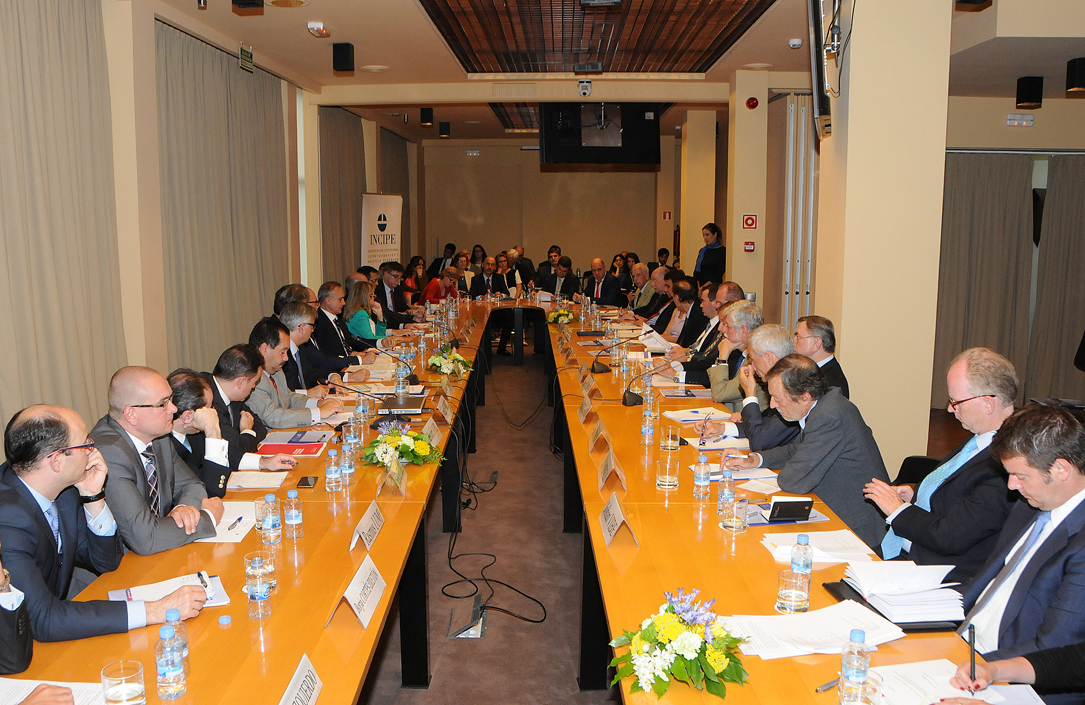Terrorism and Weapons of Mass Destruction: Spain’s Presidency of the UN Security Council Committee 1540

On June 9th, INCIPE organized a working breakfast entitled Terrorism and Weapons of Mass Destruction: Spain’s Presidency of the UN Security Council Committee 1540. The conference’s keynote speaker was Spanish Secretary of State for Foreign Affairs, Mr. Ignacio Ybáñez Rubio. Mr. Ybáñez offered a perspective on Spain’s new responsibilities as it assumes leadership of this important Committee tasked with combating the proliferation of weapons of mass destruction (WMDs).
The conference set down Spain’s primary objectives for its tenure on the Committee, which includes boosting multilateral coordination, preventing attacks against key infrastructure sites, and international cooperation. Credence was also given to the changing nature of the dangers posed by terrorists, non-state actors, and the proliferation of weapons of mass destruction. The increased ease of access to WMDs was noted, with globalization and emerging technologies highlighted as new factors that complicate the international community’s ability to fight these threats.
Turning specifically to the work of Committee 1540, the need to address countries with WMD programs was mentioned, in relation particularly to Iran, Syria, and North Korea. Also included was the importance of developing further measures to prevent terrorist organizations and non-state actors from gaining access to said weapons; again reiterating the serious nature of this threat.
As President of Committee 1540, Spain will assume a significant role in combating the proliferation of weapons of mass destruction, bringing its significant experience to bear on a larger scale. This impact will be felt as the Committee works to block state support for terrorist organizations, combats the production and transport of WMDs, implements international norms, assists other countries in developing their capabilities, and foments international cooperation. Additionally, a strong commitment to engaging other government agencies and promoting effective collaboration with civil society is critical, as it will form a broader network of actors to fight terrorism and WMD expansion.
In addition to the mandate and responsibilities of Committee 1540, Spain has adopted a National Action Plan in accordance with the directive of the National Security Strategy. This plan coordinates the deployment of resources at the national level in order to combat terrorism. It coincides with many of the objectives of Committee 1540, and should provide for further adoption of norms, protection of installations, better border control, and control of the transit of sensitive material. The plan demonstrates Spain’s commitment to foster greater multilateralism, security, and international cooperation, exemplified by a recent joint security conference between Spain and Morocco, amongst other parties.
Statements were also made that emphasized the role that global customs organizations play in the fight against terrorism and weapons of mass destruction, as well as the necessity to enforce norms, react actively to the transit of contraband substances, and educate people about the dangers said weapons pose. Spain’s extensive laboratory network and bio-security capabilities were also highlighted, emphasizing their potential to coordinate scientific and logistical resources, identify attacks, and organize a rapid response to the intentional deployment of a biological weapon.
Following the main presentations, the floor opened up for questions and brief debate, moderated by Mr. Vicente Garrido, Director of INCIPE. Comments touched on the significance of the Committee 1540 Presidency for Spain and the complex process of addressing weapons of mass destruction in the Middle East; as well the impacts of a nuclear deal with Iran and Spain’s role in those negotiations.
Robert Harding
INCIPE

